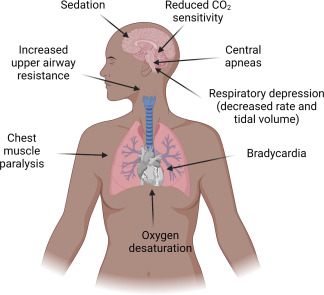A primigravida is being monitored in her prenatal clinic for preeclampsia. What finding should concern her nurse?
Blood pressure (BP) increase to 138/86 mm Hg.
Pitting pedal edema at the end of the day.
Weight gain of 0.5 kg during the past 2 weeks.
A dipstick value of 3+ for protein in her urine.
The Correct Answer is D
Choice A reason: A blood pressure increase to 138/86 mm Hg is not a concerning finding for preeclampsia. The diagnostic criteria for preeclampsia include a BP of 140/90 mm Hg or higher on two occasions at least 4 hours apart, or a BP of 160/110 mm Hg or higher on one occasion.
Choice B reason: Pitting pedal edema at the end of the day is not a concerning finding for preeclampsia. Edema is a common symptom of pregnancy and can be influenced by factors such as hydration, activity, and posture. Edema is not a reliable indicator of preeclampsia.
Choice C reason: Weight gain of 0.5 kg during the past 2 weeks is not a concerning finding for preeclampsia. The recommended weight gain for a normal-weight woman during pregnancy is 11.5 to 16 kg, with an average of 0.4 kg per week in the second and third trimesters.
Choice D reason: A dipstick value of 3+ for protein in her urine is a concerning finding for preeclampsia. Proteinuria is one of the hallmark signs of preeclampsia and indicates renal impairment. A dipstick value of 3+ corresponds to a protein concentration of 300 mg/dL or higher, which is considered severe.
Nursing Test Bank
Naxlex Comprehensive Predictor Exams
Related Questions
Correct Answer is ["B","C","E"]
Explanation
Choice A reason: Urinary frequency is a common symptom of pregnancy, especially in the first and third trimesters, due to the increased pressure of the uterus on the bladder. It is not a sign of complication and does not need to be reported immediately.
Choice B reason: Rupture of membranes is the breaking of the amniotic sac, which can occur spontaneously or artificially before or during labor. It is a sign of impending delivery and can increase the risk of infection. It should be reported immediately to the health care provider.
Choice C reason: Heartburn accompanied by severe headache can indicate preeclampsia, a serious condition characterized by high blood pressure and proteinuria in pregnancy. It can lead to eclampsia, which is a life-threatening seizure disorder. It should be reported immediately to the health care provider.
Choice D reason: Decreased libido is a normal change in pregnancy, due to hormonal fluctuations, physical discomfort, and emotional stress. It is not a sign of complication and does not need to be reported immediately.
Choice E reason: Vaginal bleeding can indicate various complications in pregnancy, such as placenta previa, placental abruption, or miscarriage. It can pose a threat to the mother and the fetus. It should be reported immediately to the health care provider.
Correct Answer is C
Explanation
Choice A reason: A sleepy, sedated affect is not a concerning sign, as it is a common side effect of magnesium sulfate. Magnesium sulfate is a central nervous system depressant that can cause drowsiness, lethargy, and reduced alertness.
Choice B reason: Absent ankle clonus is not a concerning sign, as it indicates a normal neuromuscular response. Ankle clonus is a rhythmic jerking of the foot when the ankle is dorsiflexed. It is a sign of hyperreflexia, which can occur in severe preeclampsia due to increased blood pressure and cerebral edema.
Choice C reason: A respiratory rate of 10 breaths/min is a concerning sign, as it indicates respiratory depression. This is a serious complication of magnesium sulfate toxicity, which can lead to respiratory arrest and death. The nurse should monitor the woman's respiratory rate closely and report any signs of respiratory distress.
Choice D reason: Deep tendon reflexes of 2+ are not a concerning sign, as they indicate a normal neuromuscular response. Deep tendon reflexes are graded from 0 to 4, with 2 being the average. Magnesium sulfate can cause hyporeflexia or areflexia, which are signs of magnesium sulfate toxicity.

Whether you are a student looking to ace your exams or a practicing nurse seeking to enhance your expertise , our nursing education contents will empower you with the confidence and competence to make a difference in the lives of patients and become a respected leader in the healthcare field.
Visit Naxlex, invest in your future and unlock endless possibilities with our unparalleled nursing education contents today
Report Wrong Answer on the Current Question
Do you disagree with the answer? If yes, what is your expected answer? Explain.
Kindly be descriptive with the issue you are facing.
